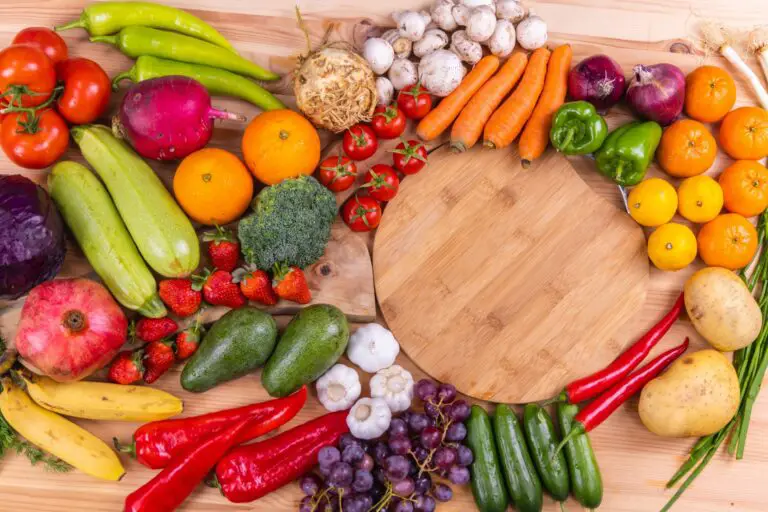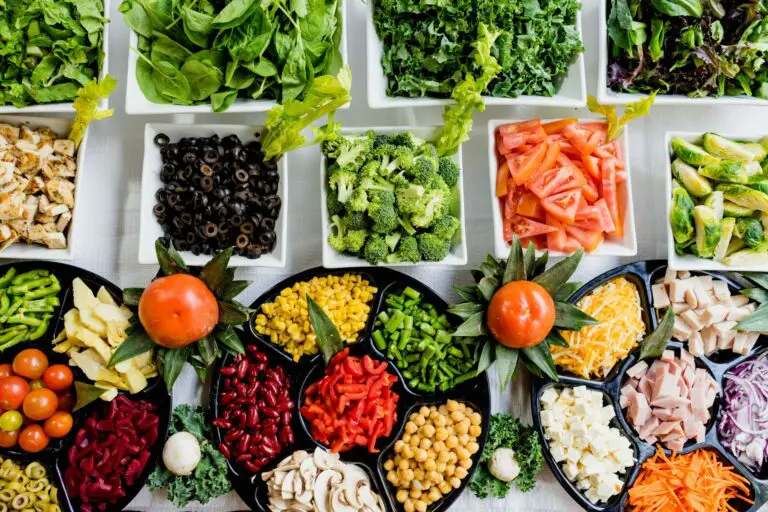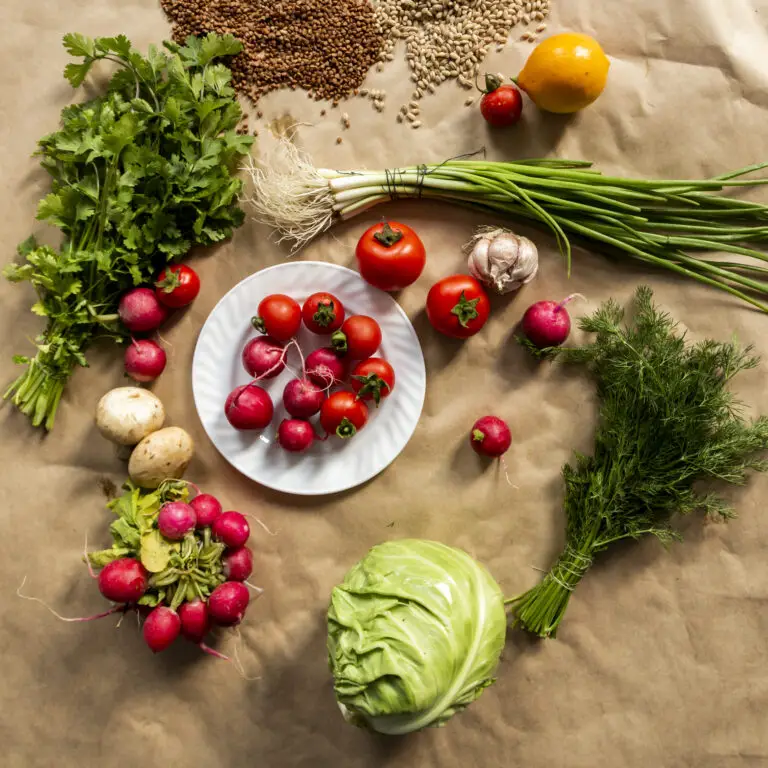What is a typical anti-inflammatory diet?
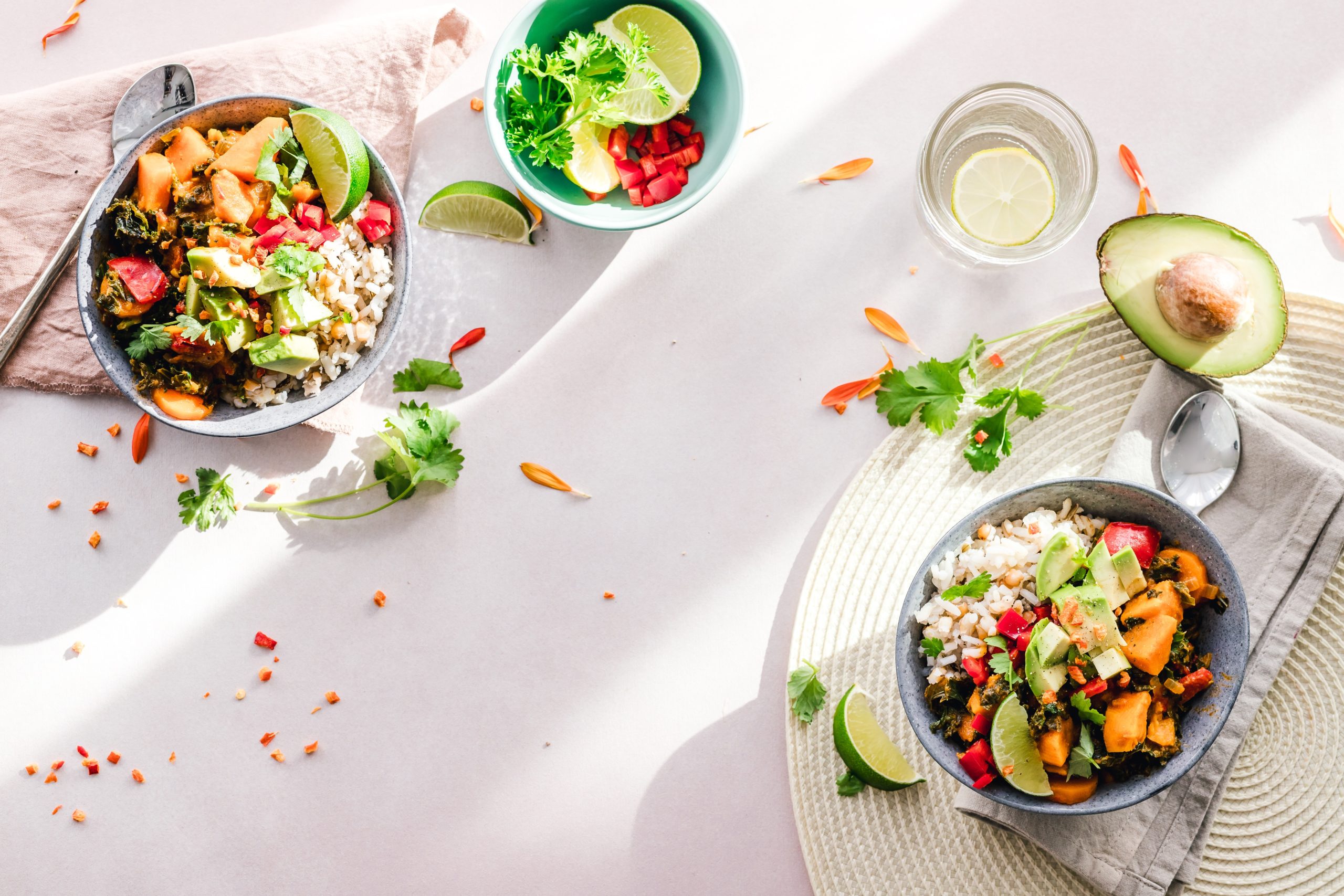
Our eating habits can define how prone we can become to suffer inflammatory processes in our bodies. These inflammatory processes can not only become annoying and make us feel insecure with ourselves, but they also have a series of repercussions at the health level, which adds even greater relevance.
Inflammatory processes develop as a response of the immune system to certain types of eating habits that our body identifies as threats and against which it defends itself by generating this inflammation However despite being a response of our body, this becomes a problem when the inflammation is prolonged over time or becomes chronic, since in this case, it can trigger a series of consequences in our health, promoting the development of diseases such as type 2 diabetes, heart disease, rheumatoid arthritis, psoriasis, inflammation of the intestine and even more serious diseases such as cancer.
We must learn to identify these foods that can promote inflammation and, in the same way, know how to recognize which are those foods that can help us deflate our body and keep it healthy, recovering the normal functioning of our body and obtaining a healthier life and helping us to have a healthier life. The anti-inflammatory diet is one of the best healthy diets.
Related: Beginner Anti-Inflammatory 7-Day Meal Plan
Why Should We Eat An Anti-Inflammatory Diet? | Andrew Weil, M.D.
What to eat on an anti-inflammatory diet?
Nutrition experts have worked hard to identify and demonstrate the benefits of incorporating some food groups into our diet, which favor optimal nutrition and are essential to use in anti-inflammatory diets. To know what foods I should eat, I must bear in mind that these foods must meet three fundamental factors:
- High nutrient content
- variety of antioxidants
- healthy fats
- Some of the foods that have proven benefits for an anti-inflammatory diet are:
- Fruits, Strawberries, grapes, cherries, blueberries, and oranges are rich in vitamins, nutrients, and antioxidants
- Vegetables, broccoli, kale, Brussels sprouts, cabbage, and cauliflower, high in vitamin K, necessary to combat inflammatory processes
- Nuts, almonds, and walnuts, among others, have a high content of healthy fat that helps stop inflammation
- Whole grains, oatmeal, brown rice, whole wheat bread, and fiber, are high in antioxidants and other anti-inflammatory substances.
- Fish, salmon, mackerel, tuna, and sardines have high omega-3 content.
- Healthy fats, olive oil, coconut oil, avocado
- Herbs and spices: Turmeric, curry, garlic.
Related: 18 Top Anti-Inflammatory Foods
These foods are made up of antioxidants, vitamins, and minerals, which help the body fight inflammatory processes and promote overall health. In addition to these foods, some drinks can favor the anti-inflammatory process, as is the case with:
Green tea, thanks to its high content of anti-inflammatory antioxidants, among its components, has epigallocatechin-3-gallate (EGCG), which inhibits inflammation by reducing proinflammatory cytokines.
Coffee. Coffee is a drink with a high content of antioxidants, such as polyphenols, which allows it to fight free radicals, favoring the anti-inflammatory process
Parsley and ginger juice: ginger has been shown to have a powerful anti-inflammatory effect, while the carnosol contained in parsley allows it to act directly on inflammatory processes.
Lemon and turmeric, with a high content of antioxidants and anti-inflammatories, help fight chronic inflammation.
Much has been demonstrated from the consumption of water and sodium bicarbonate, this preparation allows for combating inflammatory processes by helping the body to regulate its autoimmune response. However, this drink should be consumed in the short term and in a controlled manner since some studies suggest the possibility of having secondary effects on the organism.
Now, not only must we take into account the foods we must include in an anti-inflammatory diet, it is also important that we can identify those that we must exclude or limit within our eating habits.
Processed sugar, desserts, cookies, candy.
Processed carbohydrates, pasta, and white bread among others.
Processed meat: bologna, sausages, etc.
Processed fats, processed vegetable and seed oils such as soybean and corn oil.
Trans fats, foods with partially hydrogenated ingredients
Alcohol.
Why is processed sugar a poison to our bodies?
Multiple scientific evidence have shown that processed sugar acts in our body in a similar way to a drug, generating dependency and addiction, but beyond the dependency that we generate, sugar does not add any nutritional value to your diet, and therefore, On the contrary, it triggers a series of harmful consequences in our body, triggering the production of insulin, and inflammatory processes, this being one of the main responsible for the development of heart disease, diabetes, Alzheimer’s, among others.
On numerous occasions, the WHO has warned about the risks of a diet high in processed sugar, being very emphatic that this is one of the main elements we must eliminate from our diet.
How to start an anti-inflammatory diet?
To start an anti-inflammatory diet, you must rely on the style of diet that you can best adapt to your lifestyle, the reason for this is that you need to feel comfortable with this eating scheme, so that it becomes easy for you to adopt it like a habit.
Why? Well, the answer is very simple: threatening foods will always have the same effects on our body, and that is to trigger a defense reaction of our immune system to promote inflammatory processes, so that rather than looking for a solution momentary or temporary, it is necessary that you incorporate this style of healthy eating as a habit.
Changes in your eating style should be progressive, too abrupt or rapid changes should not be incorporated, as these types of changes are generally difficult to sustain over time.
On the contrary, it is recommended to incorporate small changes that allow you to modify your lifestyle, for example.
Start by hydrating yourself properly by reaching for at least 8 glasses of water a day.
Eliminate processed sugar progressively (this can be one of the most complex processes, but some foods can help you fight sugar cravings)
Include more portions of green foods in each of your meals and decrease carbohydrate portions.
Replace packaged foods with natural products, the more natural compounds you incorporate into your diet, the greater anti-inflammatory effect you can obtain
Complement your diet with some type of physical activity, covering at least thirty minutes of physical activity daily.
The point of doing this process progressively is that you don’t feel overwhelmed with the changes and end up abandoning your eating style, on the contrary, in this way you can help your body to adapt in a more stable way.
How can you structure an anti-inflammatory diet?
If you do not identify with any of the classic diets that have been developed, you can choose to configure each of your meals in a healthy way. In general terms, you could build a menu using the following example as a principle.
Breakfast: Incorporate whole grains such as oatmeal with some fruit of your choice, be it strawberries, you can also add a portion of nuts, and accompany it with green tea or coffee.
Lunch: Include some protein, with green vegetable salad, grains and some healthy fat such as avocado.
Snack: you can incorporate nuts for snack or any fruit of your choice, green smoothies are also a splendid alternative to achieve it.
Dinner: Some protein of your choice accompanied by whole grain cereal or salad and accompanied by a green drink.
In addition, you can adapt it to the way you feel most comfortable when preparing each of your meals.
The idea of diets is that you can feel comfortable in the way you eat, so that you do not get bored or overwhelmed by the style of eating and on the contrary, you can incorporate it permanently into your daily life.
A classic problem when we start a healthy diet or eating style is the tendency to have anxiety about eating sweets, one of the recommendations in this type of case is that you can choose alternatives such as dark chocolate since it has a high iron content , magnesium and antioxidants”, however, it is important not to exceed this type of food.
The use of species such as ginger and turmeric are ideal for reducing anxiety about eating sweets, they are also splendid in the anti-inflammatory diet.
Nuts are also fantastic for counteracting classic sugar cravings. The good news is that your body is detoxifying itself from sugar until eventually you no longer need to include it in your life, which in short is the ideal state to which you can lead
You should avoid alcohol consumption.
This is an important point that deserves to be highlighted, it does not mean that you should completely eliminate alcohol, at all, however, it is necessary to moderate its consumption.
Excessive consumption of alcoholic beverages has an inflammatory effect on our body. However, if you want an occasional drink, you can incorporate options such as red wine that has a high content of antioxidants.
The resveratrol content protects your body from heart disease, promoting a healthy lifestyle in general, as long as it is consumed in moderation.
Who can do an anti-inflammatory diet?
The anti-inflammatory diet is recommended for all types of people, who can eat this style, rich in vitamins, minerals and nutrients that allow them to maintain a healthy style. The anti-inflammatory diet is also the ideal complement to control different diseases such as:
- Alzheimer disease
- Cancer.
- heart disease
- Chronic pain
- Type 2 diabetes
As well as multiple inflammatory diseases that weaken the immune system, preventing the normal functioning of our body. The anti-inflammatory diet has also been shown to have great benefits in helping our body in:
- Accelerate recovery in sports training processes.
- Help in managing pain associated with aging.
- Protect the heart.
- Better quality of life for people with multiple sclerosis.
- Keep a healthy weight.
So that The benefits of this type of diet can be obtained at all levels, and allowing us to build a healthy lifestyle, is one of the best healthy diets.
Conclusion
Today, healthy lifestyles have become very popular, not only because of the need to see and feel good about ourselves but also because it is the best way to maintain comprehensive health. Our body is perfectly designed to identify those foods that have no nutritional contribution to our lives, which is why the body responds through inflammatory processes.
Avoiding, preventing and reversing inflammation in our body is simple, it only requires using a healthy eating model that allows our body to function properly. There are no magic formulas or miraculous secrets to achieve this, basically, it is about establishing a habit of eating based on natural foods, rich in vitamins, minerals, antioxidants and healthy fats, which is also essential, complemented with physical activity and adequate hydration.
Example of a salad from the anti-inflammatory diet
Chickpea Salad Bowl
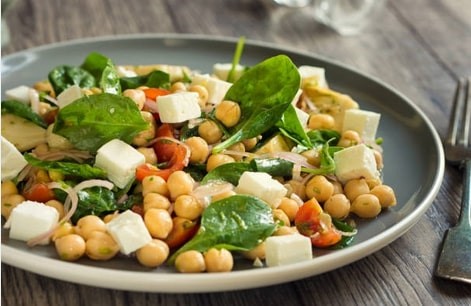
Yields: 2 servings
Ingredients
- ¼ cup vegetable broth
- 1 саn сhiсkреаѕ, rinѕеd аnd drаinеd
- 1 lаrgе сuсumbеr, ѕliсеd
- 1/2 cup chopped parsley, stems removed
- ¼ cup crumbled plant-based cheese
- Sаlt tо tаѕtе
Directions
- Add the rinsed and drained chickpea to a bowl.
- Add in the sliced cucumber and toss to combine.
- Add the chopped parsley and salt to taste and toss again.
- Scatter the cheese over the salad.
Check the Chickpea Bowl recipe for more anti-inflammatory diet
Top videos about the anti-inflammatory diet
The Benefits of an Anti-Inflammatory Diet | Julia Zumpano, RD, LD
Anti inflammatory Diet and Supplements for Inflammation & Pain
Recommended

Me encanta cocinar y escribir, tengo un Certificado de Nutrición de Inicio y un diploma de Nutrición Completa acreditado por CTAA y una Certificación de Entrenador de Salud de Nutrición Keto. Creo firmemente que comer sano es la clave para vivir una mejor calidad de vida. He tomado un curso de Terapia Nutricional que me ha dado las bases para comer saludablemente.

